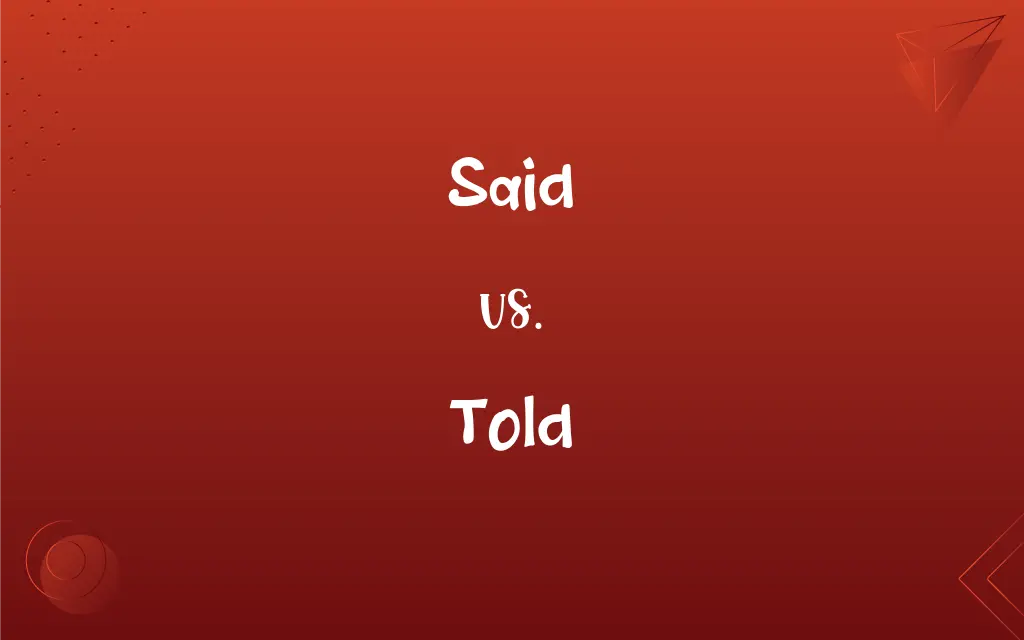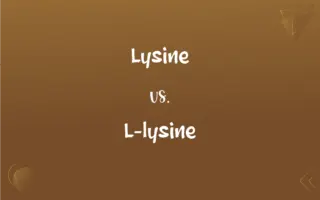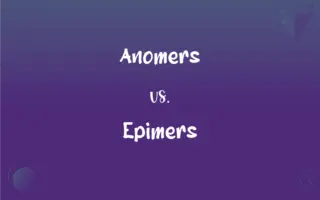Said vs. Told: What's the Difference?
Edited by Aimie Carlson || By Harlon Moss || Published on December 22, 2023
Said is used to indicate that someone has expressed something in words. Told is used when someone has informed or instructed someone else.

Key Differences
'Said' is used to report what someone has expressed, focusing on the act of verbal expression. Whereas, 'told' is used when referring to conveying information or instructions, usually with an implied receiver.
'Said' does not necessarily require a direct object (the person being spoken to); it's more about the act of speaking itself. While, 'told' requires a direct object, indicating who was informed or instructed.
'Said' is often used in direct and indirect speech for quotations or reporting speech. However, 'told' implies a transfer of knowledge, advice, or instructions from one person to another.
The use of 'said' is more general and can refer to any spoken words, regardless of content. 'Told' often carries a sense of authority or intention to inform or instruct.
'Said' can be used in various contexts, including casual conversation and formal speech. 'Told' is often used in contexts where there's an element of teaching or informing.
ADVERTISEMENT
Comparison Chart
Direct Object
Does not require a direct object
Requires a direct object (the person told)
Function
Reporting speech or expression
Conveying information, advice, or instructions
Context of Use
General use in speech, casual or formal
Often used in teaching or authoritative context
Implication
Simply indicates speaking
Implies informing or instructing
Speech Reporting
Used in both direct and indirect speech
Mostly used in indirect speech
ADVERTISEMENT
Said and Told Definitions
Said
Expressed verbally.
They said their goodbyes.
Told
Informed or instructed someone.
She told him to finish his homework.
Said
Indicated or stated in words.
She said that the meeting was at noon.
Told
Advised or suggested.
They were told to evacuate immediately.
Said
Mentioned or referred to in speech.
It was said that the event would be postponed.
Told
Narrated or related a story or information.
He told a story about his childhood.
Said
Uttered or pronounced words.
He said he would be late.
Told
Expressed or communicated in words.
She told her feelings openly.
Said
Quoted or cited.
As the author said in his book, Life is about learning.
Told
Revealed or disclosed information.
The teacher told the answer to the class.
Said
Past tense and past participle of say.
Told
Past tense and past participle of tell1.
Said
Named or mentioned before; aforementioned
The party to the contract subsequently breached said contract.
Told
Simple past tense and past participle of tell
A tale is but half told, if only one person tells it.
Said
Simple past tense and past participle of say
Said
Mentioned earlier; aforesaid.
The said party has denied the charges.
Said
Mentioned earlier; aforesaid.
Said party has denied the charges.
Said
Before-mentioned; already spoken of or specified; aforesaid; - used chiefly in legal style.
Said
Being the one previously mentioned or spoken of;
Works of all the aforementioned authors
Said party has denied the charges
FAQs
How is 'said' used in indirect speech?
'Said' is used to report what someone spoke, e.g., "He said he was busy."
What does 'told' mean?
'Told' means to inform or instruct someone.
What is an example of 'told' in a sentence?
"She told her friend about the trip."
What does 'said' mean?
'Said' means to utter or pronounce words.
Can 'said' imply authority?
'Said' is neutral regarding authority; it simply denotes speaking.
Can 'told' be used informally?
Yes, 'told' can be used in both informal and formal settings.
Can 'said' be used without a direct object?
Yes, 'said' can be used without mentioning whom it was said to.
Is a direct object necessary for 'told'?
Yes, 'told' typically requires mentioning who is being informed.
Is 'told' used for giving advice?
Yes, 'told' can be used to convey advice, e.g., "He was told to rest."
What is an example of 'said' in reporting speech?
"The witness said that the car was blue."
Can 'told' be used to express feelings?
'Told' can be used to convey feelings, e.g., "She told him she was sad."
Is 'said' formal or informal?
'Said' can be used in both formal and informal contexts.
How is 'told' different in indirect speech?
In indirect speech, 'told' implies reporting information or instructions given.
Can 'said' be used to quote someone?
Yes, 'said' is often used for quoting, e.g., "She said, 'I'm happy.'"
How is 'told' used in storytelling?
'Told' is used to describe the act of narrating or revealing information.
Can 'said' refer to written statements?
Primarily, 'said' refers to spoken words, but can also imply written quotes.
Is 'said' used in storytelling?
Yes, 'said' is frequently used in narrating dialogues in stories.
Is 'said' used for commands?
'Said' is less common for commands; 'told' is more appropriate in that context.
Does 'told' imply a transfer of knowledge?
Yes, 'told' often implies that information or knowledge is being passed on.
Is 'told' used for written instructions?
'Told' generally refers to verbal communication, but can extend to written form.
About Author
Written by
Harlon MossHarlon is a seasoned quality moderator and accomplished content writer for Difference Wiki. An alumnus of the prestigious University of California, he earned his degree in Computer Science. Leveraging his academic background, Harlon brings a meticulous and informed perspective to his work, ensuring content accuracy and excellence.
Edited by
Aimie CarlsonAimie Carlson, holding a master's degree in English literature, is a fervent English language enthusiast. She lends her writing talents to Difference Wiki, a prominent website that specializes in comparisons, offering readers insightful analyses that both captivate and inform.




































































